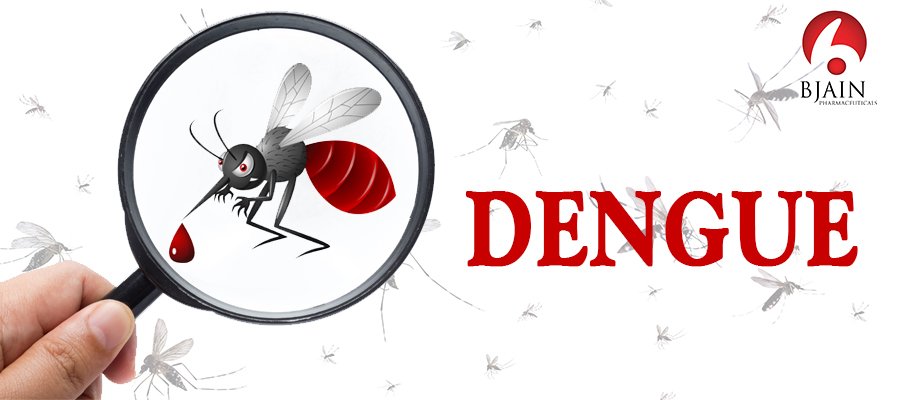Key points:
- A dengue virus can infect people when a carrier mosquito bites them.
- Although the virus usually only causes moderate sickness or no symptoms at all, dengue fever can sometimes result in more serious cases that can lead to death.
- Vector control is essential for dengue prevention and eradication.
Introduction
Aedes mosquitoes carrying the dengue virus attack humans and spread the disease. The spread of the dengue virus happens due to the infected mosquito bite. It cannot be transmitted without intermediaries from one person to another.
Risk Factors of Dengue Fever
You have a higher chance of getting dengue fever, or a more serious version of the illness if:
- You visit or reside in tropical regions. Living in tropical and temperate areas increases your chance of getting dengue fever.
- You’ve previously got dengue fever. If you contracted the dengue fever virus before, your chances of experiencing serious symptoms are enhanced.
Mode of Transmission of Dengue
Aedes mosquito bites are responsible for transmitting the dengue, chikungunya, and Zika diseases.
- Mosquitoes usually deposit their eggs in water tanks such as planters, cups, pet dishes, tubs, and pitchers.
- They dwell close to humans; inside as well as outside the house and love to bite.
- Insects of the Aedes species may sting both during daylight and at nighttime.
- If a mosquito bites someone who has the dengue virus, it may spread it to other mosquitoes. It is then transmitted to humans via bites from infected mosquitoes.
Symptoms of Dengue Fever
Dengue fever creates a serious, flu-like disease. It tends to resemble other conditions such as influenza or malaria. The sickness often lasts between 3 and 7 days. Symptoms could include:
- An abrupt high fever
- Extreme headaches.
- pain behind your eyes
- Joint and muscular discomfort.
- Nausea
- Vomiting
- Swollen glands.
- Rash arises anywhere from 3 to 4 days following the fever.
A very tiny percentage of people with dengue fever develop a severe condition. It’s known as hemorrhagic dengue fever. The manifestations appear when the fever starts to subside. These may involve persistent vomiting, fast breathing, vomit-containing blood, and gum bleeding.
Preventive Measure for Dengue Fever
The best strategy for avoiding dengue fever is to minimize water-logged areas that act as mosquito breeding grounds in households, classrooms, offices, and other locations, to steer clear of mosquito stings.
Please adhere to these precautions on all occasions to stop mosquito growth and bites:
- Place all empty containers and caps in trashcans with covers.
- Replace the water of houseplants every week, leaving no water inside the trays beneath the planters.
- Completely enclose all water containers, reservoirs, and tankers.
- Maintain every gutter free of clogging.
- Fill up any holes in the ground to prevent stagnant water from building up.
- Dress in long sleeves and trousers.
- Apply mosquito repellent to the uncovered areas of the body.
- Put up mosquito shields or netting if your space doesn’t have air conditioning.
Complications of Dengue Fever
The major consequences of severe dengue fever consist of:
- Dehydration
- Bleeding
- Hepatitis
- Shock
Serious dengue fever is uncommon, but it can be fatal.
Homeopathic Medicines for Dengue Fever
- Omeo D-FVR Plus medicated syrup: It is a homeopathic specialty product used to help with cases of fever and its associated complaints. It helps with the symptoms of viral fever such as weakness, temperature, debility, loss of appetite, headaches, and body aches.
- Eupatorium perfoliatum: It is characterized by severe muscular, bone, and joint aches, and a high temperature. This drug is called ‘bone set’ since it provides the quickest relief from terrible bone and joint aches with fever. Pain might be felt in any joint or across your entire body. Generally, physical aches make it feel like the whole body is damaged. Aside from alleviating joint pain, it is quite effective for the eye pain associated with dengue fever.
- Bryonia alba: Bryonia Alba helps relieve muscular and joint discomfort caused by dengue fever. This medication is most effective when pain worsens due to any activity, regardless of how minor. Full rest relieves pain. The patient has a fever with noticeable chills. Chills produce heat in the brain.
- Rhus tox: Rhus Tox is the next widely prescribed remedy for pain relief amid fever. It acts most effectively when muscle or bone pain worsens at rest and improves with activity. It involves a fever with alternate heat and cold stages. Intense heat develops throughout the body, leading to chills and shaking.
- Gelsemium: Gelsemium is especially effective for dengue fever victims with severe fatigue and prostration. Gelsemium is best used when you feel dull, dizzy, or drowsy. The patients appear sluggish and prefer to recline in complete stillness without any interruption. He or she prefers silence over communication. The patient suffers shivering chills that begin in the back and go from the top to the bottom of the back. Another characteristic is experiencing headaches with ocular heaviness.
- Belladonna: Belladonna is the greatest choice for headache relief. Pain can be felt anywhere on the head, however, it is more noticeable on both sides of the skull (temples). The agony from taking Belladonna is intense and throbbing in character. A tight binding around the head gives relief. It also helps to relieve discomfort under the eyes. Fever is characterized by high heat in the entire body, a red-colored face, and an absence of thirst.
Frequently Asked Questions (FAQs)
Q. How many days does dengue fever last?
Ans. Most dengue patients have minor or absence of symptoms and recover within 1-2 weeks. Dengue fever, on rare occasions, can be fatal. If indications develop, they typically appear 4-10 days after getting infected and last 2-7 days.
Q. How to cure dengue fever faster?
Ans. These are a few measures to strengthen your system and enhance your immunity.
- Maintain proper hydration.
Consume lots of liquids (water, mineral drinks, fruit-based drinks, and broth) to stay hydrated. Limit beverages such as coffee, tea, wine, and sugary soft drinks, because these might exacerbate dehydration.
- Keep signs and symptoms under surveillance.
Fever and joint discomfort can be eased by using appropriate homeopathic medications. Rashes often cure on their own within 2 to 3 weeks.
- Prevent wounds.
Rest in bed, lower your chance of injury from falls, and prevent needless wounds.
- Things to Eat and Skip.
There are no particular items you can consume or avoid; nonetheless, while suffering from any sickness, the general rule applies, such as avoiding uncooked, fatty, or fat-rich, hot meals. When unwell, it is recommended to eat light and easy-to-digest foods.
Q. What is the dangerous period for dengue?
Ans. Dengue fever warning signs appear on the fourth to seventh day, indicating the crucial period. By the 4th day, the patient might not experience a fever, so he seems better and does not seek medical attention, rendering the sickness more hazardous.

Dr Kiran Swami
Dr. Kiran Swami, BHMS, MD (Hom.), a Research Officer at BJain Pharmaceuticals Pvt. Ltd., holds degrees from Nehru Homeopathic Medical College, Delhi, and Dr. Sarvepalli Radhakrishnan Rajasthan Ayurved University, Jodhpur. With expertise in homeopathy and a passion for research, she drives innovation in holistic healthcare solutions.


